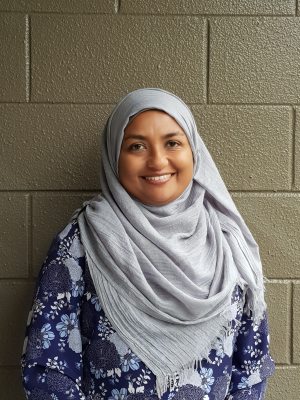Tackling Native Speakerism: What Can You Do to Address Discriminatory Ideologies?
| Kate | Kamala |
| Native speaker of English
Bachelor’s degree in biology Certificate in English language teaching Loves to travel Languages: English |
Bachelor’s degree in English language and literature
Postgraduate diploma in education Master’s degree in applied linguistics 10 years’ experience as an ESL teacher Languages: Hindi, Marathi, Telugu, English, Tamil, German |
Based purely on these factors, which of the teachers would you choose?
Most people would agree that Kamala is the clear choice here. She is more qualified, and she is a trained and experienced teacher. Being a multilingual, she would also be aware of the challenges for language learners, and be better able to relate to the process of learning a language.
However, some people would believe that Kate—despite her lack of relevant experience and limited training as an English teacher—has the trump card. She is a “native speaker” of English. In contexts where English is not the dominant language, this is often seen to be especially attractive. Having grown up in and lived most of my life in such a context, I know of far too many instances where Kates were chosen over Kamalas simply because they had the right skin colour, passport, and accent, despite being lesser qualified for the job.
Although most people would agree that the concepts of “native speaker” and “nonnative speaker” are no longer valid, the harmful and discriminatory ideologies continue to persist. The underlying presumption is that being taught by a “native speaker” of English will enable students to acquire the language to a similar level of competence and help them sound like a “native speaker.” A related belief is that such speakers make better teachers.
In first coining the term native speakerism, Adrian Holliday describes it as “the chauvinistic belief that ‘native speakers’ represent a ‘Western culture’ from which spring the ideals both of the language and of language teaching methodology” (p. 49). These beliefs affect the professional lives of English teachers in multiple ways, and those who do not have the status of “native speaker” are perceived to be the inferior Other who will not to be able to succeed on their own terms.
A former student of mine who recently got a job in a university in an East-Asian country told me how her salary was several times lower than her counterparts in the same position simply because she was Chinese and spoke English as a second language and her colleagues were all white British and American nationals. A friend who grew up in Sri Lanka, speaking primarily English and educated in English medium schools all her life, with a teaching qualification and specialization in TESOL from a British university, is a high school English teacher in a South Asian country. She was told by her employer that because she was not a “native speaker,” her English lessons would need to be supplemented by a British high school graduate who would teach students how speak in English.
These two examples illustrate how the false dichotomy between “native” and “nonnative” speakers is problematic and fuelled by racist ideologies that promote monolingualism rather than valuing multilingualism. The idea of native speakerism regards language as static, ignoring how time, people, and places impact our language constantly, allowing our linguistic repertoires to develop and evolve.
Learners and teachers who speak English as an additional language should not be marginalized because of their linguistic background, but rather, their multilingualism should be valued and celebrated. Their multilingualism needs to be recognized for the advantages it offers: potentially greater cognitive flexibility, morphosyntactic knowledge, metalinguistic awareness, creativity, problem-solving skills, and memory. Teachers who are multilinguals are typically better able to understand and verbalise the target language’s structure and help their students see how the language is put together. As multilinguals, they benefit from both received knowledge, gained through training and education, and experiential knowledge, obtained via the process of language learning.
So, what can we do to tackle this?
- Make space for language varieties in your classroom. Expose your students to a range of different varieties of English so that they hear the rich variations in how English is used around the world.
- Raise awareness about the issue. Talk to your students, colleagues, friends, and family. Find out their experiences.
- Encourage colleagues to shift away from standardized varieties to focus on achieving a high level of intelligibility instead.
- Shift the focus among language teachers from “nativeness” to language proficiency and language teaching competence. These aspects are more helpful in thinking about one’s identity as a language teacher.
- Review the policies at your institution. Does the recruitment process favour individuals from certain language varieties? Is there a difference in the pay scale between “native speakers” and “nonnative speakers”? Does the enrolment policy marginalise students for whom English is not the dominant language? Advocate for change.

